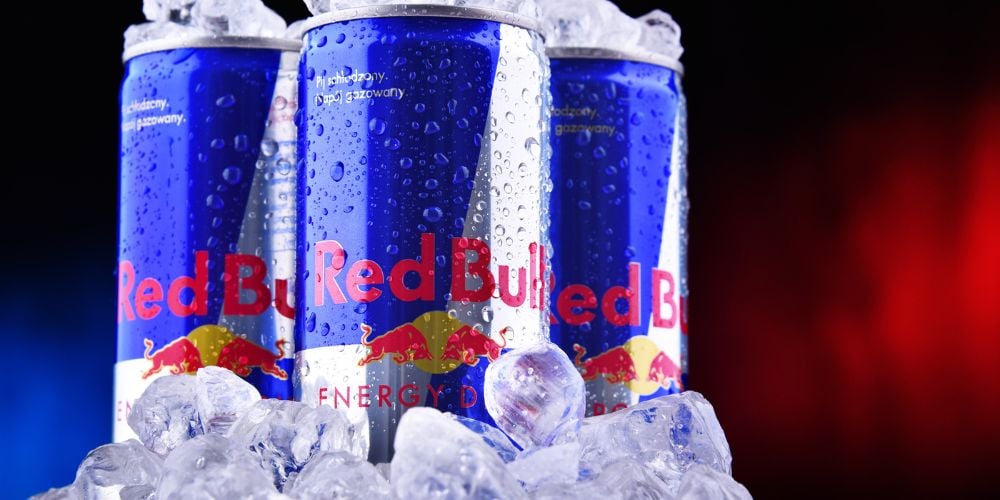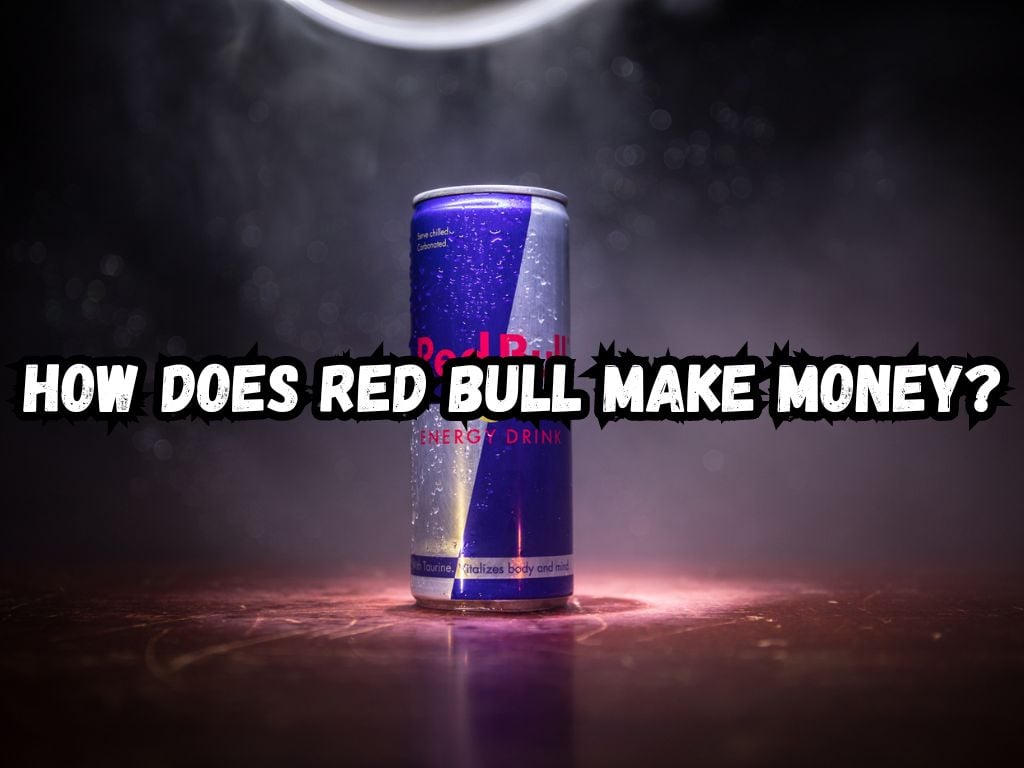Red Bull is a world-renowned brand that has achieved tremendous success over the years, thanks to its bold marketing strategies, innovative approach, and unique products.
But have you ever wondered how does Red Bull make money and generate profits?
In this article, we will explore Red Bull’s business model and take a closer look at the various revenue streams that contribute to its financial success.
History and Brand Evolution
Red Bull was founded by Dietrich Mateschitz, an Austrian entrepreneur, who discovered a Thai energy drink named Krating Daeng on a business trip to Bangkok.
He fell in love with the drink’s benefits and decided to bring it to the West, launching Red Bull in 1987. The drink’s popularity skyrocketed in the 1990s, thanks to its association with extreme sports and young people.
Today, Red Bull is recognized as one of the most successful and innovative brands in the world, with a loyal following of fans willing to pay a premium for its products.

How Does Red Bull Make Money? The Revenue Streams Overview
Red Bull generates revenue from a variety of sources, which include energy drink sales, event sponsorship and marketing, merchandise, and content creation. Let’s take a closer look at each of these revenue streams.
Energy Drink Sales
Red Bull’s most well-known revenue stream is, of course, its energy drink sales. Red Bull’s energy drinks are sold in over 171 countries, which equates to over 7.5 billion cans sold per year.
Despite its premium pricing, Red Bull’s energy drink sales continue to grow, thanks to its exclusive distribution deals and strong brand recognition.
Red Bull invests heavily in marketing its product to stand out in a crowded market. They use exclusive deals with retail outlets and highly visual design to create a striking presence on shelves. In 2019, Red Bull invested over $1bn in the production of its drinks.
Event Sponsorship and Marketing
One of Red Bull’s most significant revenue streams is event sponsorship and marketing. Red Bull has a long-standing association with extreme sports such as BMX and snowboarding, sponsoring events, and athletes in these niches. The association has helped elevate the brand’s image and attract a more youthful audience.
Red Bull also hosts several of its events, including the Red Bull Air Race and Red Bull Soapbox Race, which attract thousands of attendees. It creates unique and visually impressive challenges that are designed to draw people in and shows the brand’s ethos of bringing action and excitement to people’s lives.
Red Bull’s marketing campaigns are infamous for their creative and bold approach, which always sets them apart. The brand’s slogan “Red Bull gives you wings” and its clever advertising campaigns have helped it become a household name.
Merchandise
Red Bull’s branded merchandise, which includes hats, t-shirts, and backpacks, is another revenue stream for the company. This merchandise is typically sold at events and online stores, and the profit margins on these items are often high.
Fans of the brand are willing to pay a premium price for these exclusive items. In addition, the merchandise acts as another way to advertise the brand to others, thereby helping to generate even more revenue through increased brand recognition.
Content Creation
Red Bull has a successful media division that creates content around its branded athlete team, sponsored events, and other extreme sports content. Red Bull’s aim to “give people wings” is the motivating factor for its content creation, which inspires and motivates fans to live life to the fullest.
Red Bull Media House has produced content for a range of platforms, from television and streaming services to online portals such as YouTube.
Red Bull’s most successful content creation, however, is arguably its partnership with GoPro to create high-quality sports action shots. By creating this content, Red Bull has been able to monetize its audience without necessarily looking to sell more drinks.

Global Reach
Red Bull has an international presence, which has contributed to its financial success. The brand has a strong global network of distributors and strategic partnerships with companies in different countries.
This approach allows Red Bull to localize its marketing, events, and even drink flavors to suit local taste preferences, thereby boosting regional sales.
In recent years, Red Bull has focused on expanding its presence in emerging markets, where there is a significant demand for energy drinks. By doing so, the company is diversifying its revenue streams by tapping into new markets.
Financial Success
Red Bull’s strong financial performance is a testament to its successful business model. In 2019, Red Bull had revenue of $6 Billion, up 10% from the previous year.
Despite its premium pricing, Red Bull has been successful in establishing a strong brand image, which has helped it grow and maintain its customer base over the years. The company’s focus on innovation, customer engagement, and creative marketing has also helped it stay ahead of the competition.
The company’s distribution and marketing efforts have made it a household name. Its strong brand identity, which is built around a youthful image and an image of ‘giving people wings,’ is consistently reinforced by its advertising campaigns.
Red Bull’s success is also partly due to the company’s reputation for being an innovator in the beverage industry. It was the first company to introduce the concept of an energy drink, for instance.
Conclusion
Red Bull’s financial success is founded on a diverse range of revenue streams, including energy drinks, event sponsorship and marketing, merchandise, content creation, and global presence.
The brand’s focus on innovation and unique marketing strategies has helped it carve out a strong market position and connect with customers worldwide. With its continued focus on expansion and new products, Red Bull is well-positioned for continued growth in the coming years.
As the brand continues to invest heavily in marketing and innovation, it is likely that Red Bull will continue to be a major player in the beverage industry for years to come.
Its focus on building exclusivity and delivering a premium consumer experience has made it a household name and ensured its long-term success.


 Tags:
Tags:










